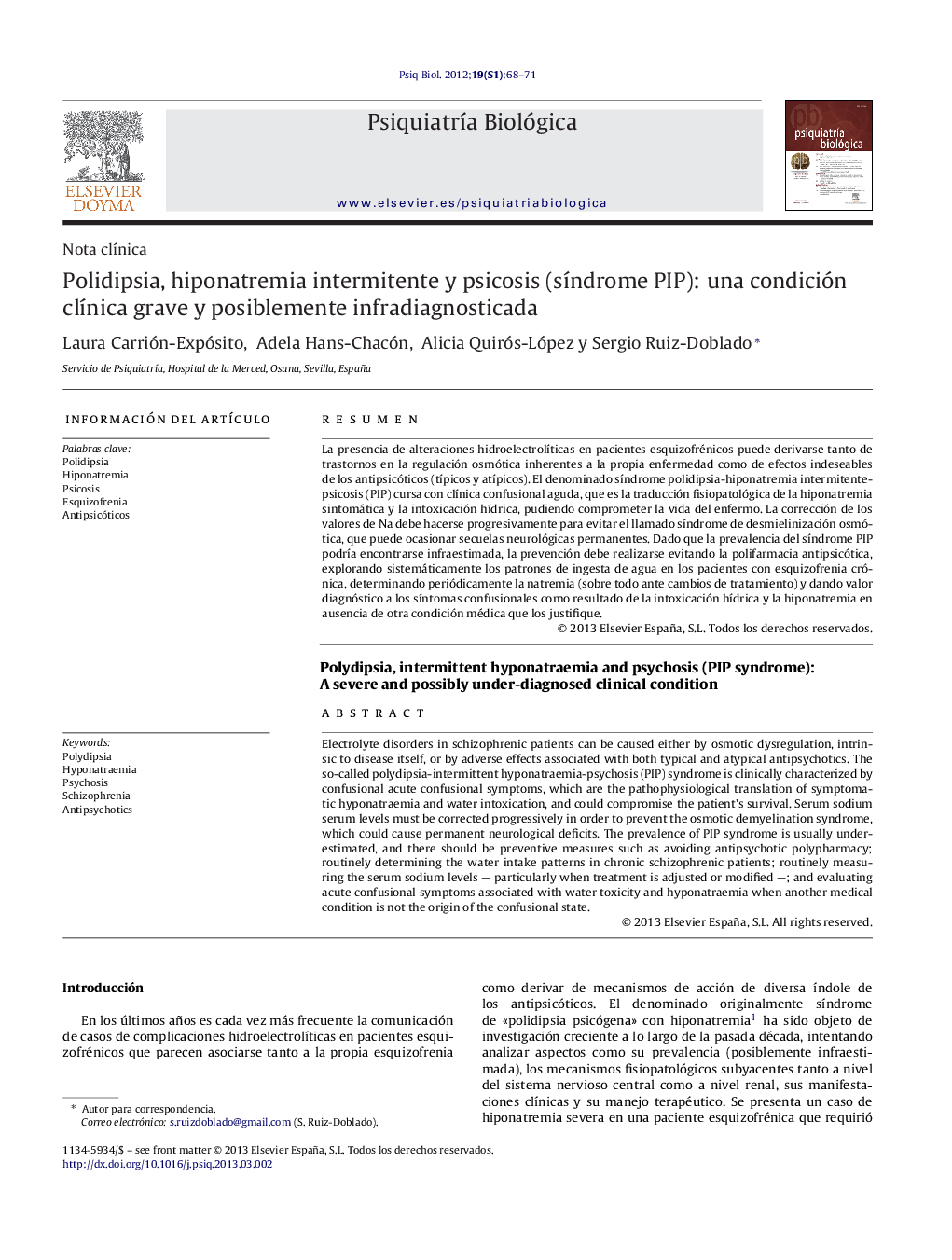| Article ID | Journal | Published Year | Pages | File Type |
|---|---|---|---|---|
| 4188782 | Psiquiatría Biológica | 2012 | 4 Pages |
Abstract
Electrolyte disorders in schizophrenic patients can be caused either by osmotic dysregulation, intrinsic to disease itself, or by adverse effects associated with both typical and atypical antipsychotics. The so-called polydipsia-intermittent hyponatraemia-psychosis (PIP) syndrome is clinically characterized by confusional acute confusional symptoms, which are the pathophysiological translation of symptomatic hyponatraemia and water intoxication, and could compromise the patient's survival. Serum sodium serum levels must be corrected progressively in order to prevent the osmotic demyelination syndrome, which could cause permanent neurological deficits. The prevalence of PIP syndrome is usually under-estimated, and there should be preventive measures such as avoiding antipsychotic polypharmacy; routinely determining the water intake patterns in chronic schizophrenic patients; routinely measuring the serum sodium levels - particularly when treatment is adjusted or modified -; and evaluating acute confusional symptoms associated with water toxicity and hyponatraemia when another medical condition is not the origin of the confusional state.
Keywords
Related Topics
Health Sciences
Medicine and Dentistry
Psychiatry and Mental Health
Authors
Laura Carrión-Expósito, Adela Hans-Chacón, Alicia Quirós-López, Sergio Ruiz-Doblado,
